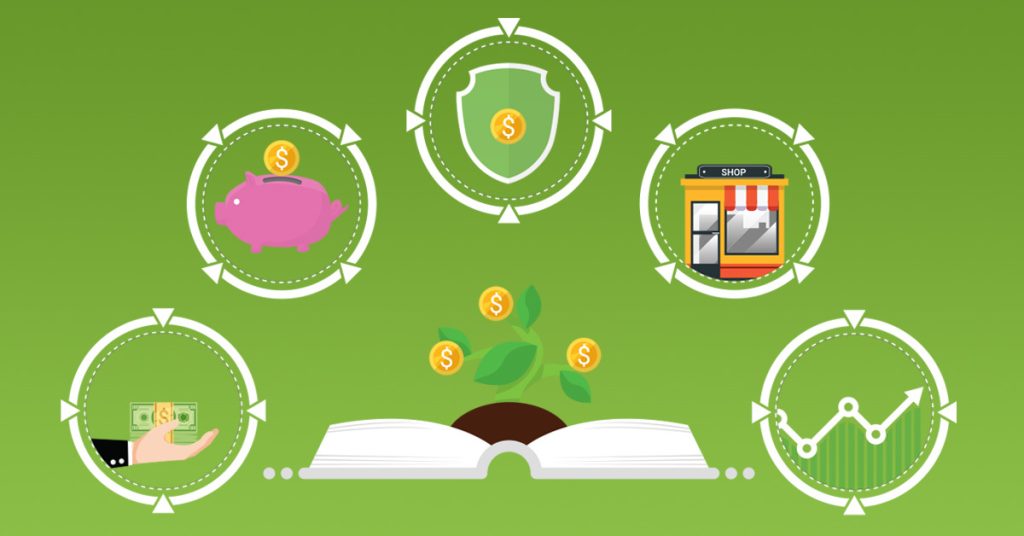
Introduction
Financial literacy may often feel elusive, especially in a culture that tends to prioritize immediate gratification over future prospects.
However, the importance of financial literacy remains a key factor in constructing a secure financial future for individuals and their families.
This article aims to shed light on various aspects of financial empowerment, focusing on its significance, benefits of financial education, and practical steps to foster responsible financial habits.
The importance of Financial Literacy
In an era of consumerism, overspending has become commonplace, leading to a growing number of individuals trapped in debt cycles.
Financial literacy offers a solution to those who struggle to manage personal and family expenses effectively. Whether in South Africa or globally, a strong financial foundation is indispensable for achieving financial empowerment.
This article delves into the essential steps of becoming financially responsible, addressing both the benefits and practical approaches to enhance financial literacy and break free from the burden of debts.
In our era, achieving financial empowerment goes beyond what society tells us and the norms we’ve grown accustomed to. It all comes back to understanding how money works, and that’s where we can help you.
As we journey into the world of personal finance, one thing becomes crystal clear: knowledge is like the foundation of a strong building, and it’s what helps us build better lives.
Picture the journey to financial empowerment as a practical path you can actually walk. It’s not just some vague idea; it starts with grasping why being financially literate is such a big deal.
That understanding is like a spark that sets you on a journey to make smarter decisions that match your unique life.
But how to improve my financial literacy?
By getting into financial literacy, you’re basically getting your hands on tools that let you make sharp moves with your money, changing how you feel about finances from confusion to control.
And guess what? These changes in how you deal with money have a ripple effect that touches every part of your life. It’s not just about being good with numbers; it’s about feeling confident when you need to make choices.
You’ll learn on how managing debts, saving up smartly, and even making investments that set you up for a comfy future. Being financially literate also helps you spot and dodge scams that usually trick people who don’t know much about money.
Benefits of Financial Education
Why is financial education so vital?
Primarily, financial education enhances decision-making skills by promoting rational thinking over emotionally driven choices, which often result in poor financial outcomes.
Control over budgeting and debt management is a hallmark of financial education. Key benefits associated with financial literacy include:
- Confidence in Decision-Making: Familiarity with financial concepts reinforce individual confidence in making decisions, whether selecting suitable investments or managing credit.
- Debt Management: Essential to financial education, effective debt management involves developing strategies to handle various debt scenarios, such as: bank loan, credit cards.
- Savings and Investment: Saving is the initial step towards financial education. Living within one’s means enables responsible thinking and constructs the way for secure investments and a stable future.
- Protection Against Scams: Awareness of scams prevalent in today’s technological world is essential. Financial education arms individuals against falling victim to fraudulent activities.
- Economic Empowerment: Financially literate individuals contribute to a nation’s economic growth and stability, making them valuable assets to society.
Practical Steps for Enhancing Financial Literacy:
Enhancing financial literacy is an ongoing journey. Progress in financial knowledge is achievable through practical methods, such as:
- Educational Resources: Utilize educational websites, organizations, and platforms like YouTube to access valuable financial information and insights.
- Online Courses: Enroll in reputable online courses offered by established financial institutions to complement your financial literacy.
- Budgeting and Saving: Prioritize budgeting and saving to distance yourself from debts and loans.
- Investment Basics: Following saving, understanding investment fundamentals enables wiser money management decisions.
Conclusion
In simple terms, if you’re tired of money troubles or feeling unsure about where you’re headed, you can totally change things around. And it all starts with a promise to learn and grow.
As more folks like you and entire communities see the magic of learning, we’re stepping into a time when financial empowerment is for everyone.
Think of learning about money as a map that helps you rewrite your story. Say goodbye to doubting yourself and hello to a lot more control over your finances.
Oh, and don’t forget, while working towards being a money ninja might have some tricky bits, it’s all part of a journey filled with potential.
By sticking with learning about money, you’re really moving towards a future where things like having enough money and feeling secure are totally doable.
Feel free to come back to our blog. Relevant financial information is always on, see you!




